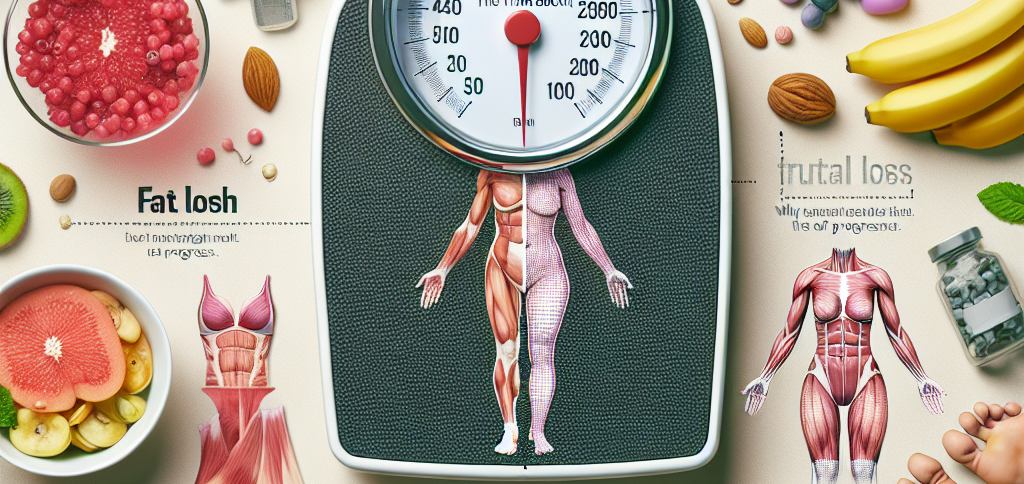10 Crucial Differences Between Fat Loss and Weight Loss
When people embark on health journeys, terms like "weight loss" and "fat loss" often get used interchangeably. However, understanding the distinction between the two can significantly impact how effective and sustainable the results are. To demystify these concepts, here are ten crucial differences between fat loss and weight loss, and why you should focus on the right one for your health goals.
1. Understanding Basic Definitions
Weight Loss: At its core, weight loss refers to a reduction in overall body weight. This can comprise muscle, bone, organ size, and, of course, fat. It’s a broad category that does not specify what is being lost.
Fat Loss: Fat loss specifically targets reducing body fat. It aims to maintain or increase lean body mass (muscles and bones) while reducing unwanted fat.
2. Scale Readings Can Be Misleading
The bathroom scale can be a deceiving companion in your fitness journey. While a significant drop in weight may seem like a victory, it doesn’t differentiate between muscle and fat loss. Successful fat loss often won’t reflect drastically on the scale. Instead, consider methods like body fat percentage measurement to get a clearer picture.
3. Metabolism Matters
Losing fat rather than weight preserves muscle mass, which is crucial for a well-functioning metabolism. A higher muscle mass translates to a higher basal metabolic rate (BMR), meaning you burn more calories at rest. Weight loss that includes muscle loss can slow down your metabolism, making it harder to maintain weight loss in the future.
4. Appearance and Body Composition
When focusing on fat loss, you may notice significant changes in your body composition, even without major scale shifts. Clothes fit differently, and you may appear more toned and healthier. Conversely, weight loss may not change your body’s shape significantly if you’re losing weight in areas you didn’t intend to target like muscle.
5. Health Implications
Reducing body fat, particularly visceral fat around organs, significantly lowers the risk of chronic diseases like heart disease, diabetes, and certain cancers. Simply losing weight without considering composition can sometimes be detrimental. For instance, losing too much muscle mass can lead to frailty and reduced immune function.
6. The Importance of Nutrition
In weight loss, a calorie deficit is often the primary focus. While important, it does not address the quality of weight being lost.
For fat loss, nutrition takes center stage, prioritizing nutrient-rich foods that support muscle maintenance and fat reduction. Consuming adequate protein is essential to retain muscle during fat loss.
7. Exercise Regimen Variations
Weight loss programs may emphasize cardiovascular activities to burn calories. While effective in creating an energy deficit, they can sometimes lead to muscle loss.
Fat loss programs focus on strength training. Weightlifting or resistance training helps maintain or build muscle, ensuring that weight lost comes primarily from fat stores.
8. Sustainability and Long-term Results
Weight lost through extreme diets often leads to the yo-yo dieting effect where weight is quickly regained. Sustainable changes in lifestyle focusing on fat loss ensure gradual progress that is easier to maintain over time. Long-term fat loss is typically more sustainable than weight loss because it involves lifestyle changes rather than temporary fixes.
9. Psychological Impact
Focusing on fat loss rather than weight can have a positive impact on mental health. It encourages seeing progress in more meaningful ways, such as improved fitness, higher energy levels, and better fitting clothes. Weight loss obsession can sometimes result in unhealthy patterns or eating disorders, as individuals may prioritize numbers over overall health improvements.
10. Technology and Resources
Modern technology provides tools to accurately measure and track fat loss, such as body fat scales or DEXA scans. Relying on more than just a typical scale can give a detailed picture of progress.
To enhance your fat loss journey, taking advantage of available resources can amplify results. If you are serious about understanding the nuances between fat and weight loss and want guidance tailored to achieving sustainable fat loss, consult expert advice and programs. Click Here to learn more, for a comprehensive approach crafted to optimize your journey to a healthier, leaner you.
Understanding these pivotal differences enables you to tailor your approach, focusing on losing fat while preserving or even building muscle. By emphasizing fat loss over mere weight loss, you foster a healthier lifestyle that not just sheds pounds but promotes lasting well-being and vitality.






